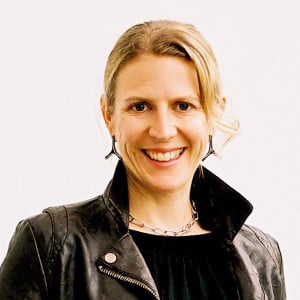
Much like a chef prepares an elaborate meal with diverse ingredients, Allison Carruth ’04 M.A. ’08 Ph.D., the new associate director of Stanford’s Science, Technology and Society program (STS), has returned to campus to concoct a dish of her own. However, instead of a gourmet meal, this dish comes in the form of spicing up the major with a blend of STS courses and concentrations relating to the intersection between contemporary culture, biotechnology and food science.
The STS program, which provides students with an interdisciplinary approach to studying science, technology, engineering and other interrelated fields, recently underwent administrative changes, with the hiring of a new director, Fred Turner of the Communication Department, and Carruth, formerly an associate professor of English at the University of Oregon.
Since arriving on campus, Carruth has assisted in revamping the entire STS major after evaluating similar programs across the country and receiving input from students and faculty. The new curriculum will keep much of its initial focus, but will expand to include two new tracks: Environment and Sustainability and Life Science and Biotechnology. In addition, a more concentrated core will directly inform each of the six individual tracks within the major. The changes are set to take effect on Sept. 1, 2012.
Carruth comes to Stanford with a background in food studies, environmental humanities and post-industrial American literature and culture — experience that has allowed her to contribute to innovations in the new STS curriculum.
“Dr. Carruth brings an exceptional expertise to bear on the intersection of culture and technology,” Turner said. “[She has incorporated] a forward-looking desire to integrate new areas of scientific and technological activity into conversation with new approaches in the humanities and social sciences.”
As a result of her contributions to the program, STS students such as Maya Amoils ’12, a peer advisor in the STS program, are able to further specialize their academic focus within the major.
“The concentration options seem exciting, cutting-edge and relevant to Stanford’s broader ethos…and ensure that students graduate with more concentrated interests and expertise,” Amoils said.
Aside from polishing the STS curriculum, Carruth also teaches courses in the department, including a new course titled, “Wired Space, Green Space,” open to all class years and majors, and a senior colloquium titled, “Food in the Information Age.”
Along the lines of her interest in food studies, Carruth’s senior colloquium focuses on the culture and politics of food in the modern age, allowing students to incorporate ideas and material from the arts, anthropology and natural sciences into their studies. Among other class projects, Carruth splits the students into teams and assigns them a Bay Area start-up dealing with food and environmental issues to profile in order to understand food systems and practices in contemporary society.
“Dr. Carruth did not fall short of my expectations,” said Amoils, who took the colloquium this past fall quarter. “It was one of my favorite classes at Stanford.”
Carruth said she feels equally inspired by her interactions with the students taking her course and those who are under her guidance as STS majors.
According to Carruth, “The students are curious, ask really great questions and are very entrepreneurial” as they pursue their concentrations within the major.
Carruth said she believes that the honors students in the program are especially impressive as they carve out their own academic fields and push for an understanding of the ethical dilemmas and social potential faced by a technologically advanced society.
She cited one student who is carrying out studies on the California high-speed rail project, a topic Carruth argues bridges both quantitative and qualitative research methods in its focus on the infrastructure of the project and the technological obstacles that stand in its way.
Despite her varied intellectual interests, Carruth suggests she was not raised in an “academic” family.
“My grandfather went as far as the seventh grade and then worked in an oil refinery all his life, but he was a self-taught student of history and science,” Carruth said.
As a child, Carruth was a voracious reader and recalls frequently reading books with her grandparents, an activity that instilled in her the value of education and hard work from a young age.
Raised in an extended family that includes factory workers, ranchers, entrepreneurs, educators and psychologists, Carruth’s interest in the transformative powers and environmental consequences of the Industrial Age took hold early on.
She completed her master’s and doctorate degrees at Stanford in English and American literature and wrote her dissertation on the history of industrial agriculture in America. Her work has recently been expanded into a book titled, “Global Appetites: American Power and the Literature of Food.” According to Carruth, the book examines work by American writers and artists, arguing that industrial agriculture became a facilitator of American power, and that food became an inspiration for new kinds of art.
In the future, Carruth hopes to continue to publish work that inspires discussion and interest in others.
“Having a career where I get to be in a world-class research community environment, collaborating with great scholars [makes up] one big piece of the long-term goal,” she said.
The Stanford community, in other words, is a pivotal ingredient in the broader scope of her career as both an architect — or chef — of the STS program, and as a contributor to the greater “dish” of academia.